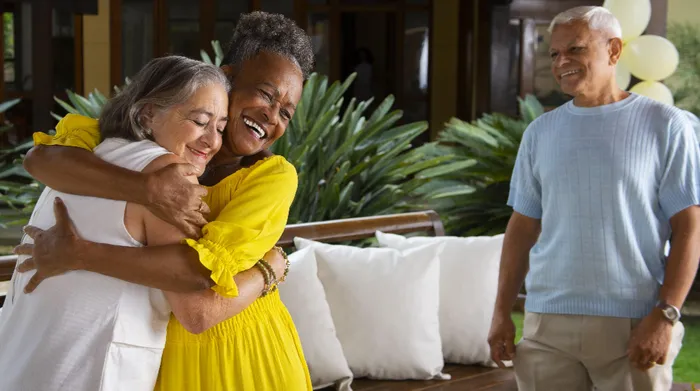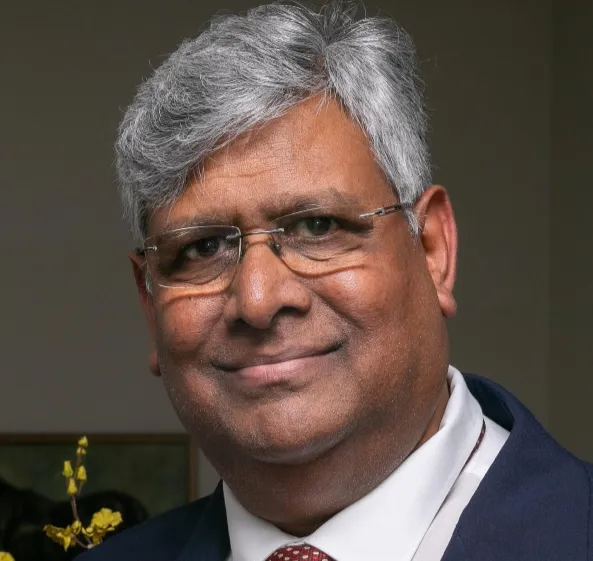
The writer says it is time to reconnect with neighbours.
Image: Freepik.com
GROWING up in the family house, our Muslim neighbour Mrs Hafiza Adam would address my mother as “sister”. In turn my mother would refer to her as “sister”.
On many evenings, my mother would exchange a small bowl of food with Adam Aunty, as we children referred to her. It was more than just sharing a meal - it was a quiet gesture of connection, care, and mutual support. Whether it was dhall bubbling on the stove, some tripe curry, extra rice, or freshly made roti, food often travelled between house numbers 45 and 47 without ceremony, but with plenty of heart.
These small acts of sharing built trust, reinforced community bonds, and turned simple nourishment into a shared experience. In tough times, they could mean resilience; in joyful moments, celebration. The deep interpersonal connection between my mother and Mrs Adam transcended any Hindu-Muslim religious differences there may have been.
Mrs Adam could speak fluent Tamil. Before moving to Umhlatuzana in the early 1960s, she had lived in Hillary among people who spoke various Indian languages. Much like the great philanthropist Hajee Muluk-Mahomed Lappa Sultan (ML Sultan) who arrived in South Africa from South India and could speak flowing Tamil.
In Robert Frost’s poem, Mending Wall,”it is said: “Good fences make good neighbours”.
I say: “No fences make better neighbours.”
Frost’s line is frequently used to justify building a fence and keeping neighbours at arm’s length. But in fact, it is an indictment against our culture’s collective failure to be hospitable and neighbourly. Social media has certainly exacerbated the problem, but it certainly isn’t the root cause. In the “good old days”, before the advent of the notorious Group Areas Act uprooted settled communities in localities such as Seaview, Bellair, Hillary, Cato Manor, Riverside, Fynnland, Clairwood and Rossburgh, and relocated them into ghetto townships such as Chatsworth and Phoenix, there were no fences to keep families apart.
There may have been a thorny edge between houses but this would have served more to keep fowls and dogs from straying than to create division between families. Long before neighbourhood watches became vogue owing to rising crime levels, neighbours looked out for each other, reporting suspicious activities, and collaborating with local law enforcement - that is, back in the days when there existed a system such as law enforcement.
Over the years, as bank balances swelled owing to prosperous economic circumstances, the bond between neighbours has shrunk. Homes are now bigger, with smaller yards. Families have more cars and drive away more often, spending less time at home, and definitely less time in their yards. The local park where kids would play games such as three tins, hopscotch, marbles and spinning tops, and rode their bicycles, has now become a place to fear paedophiles and drug dealers.
In days gone by, a new neighbour would be welcomed with a freshly baked cake, a bunch of flowers picked from the garden, some homegrown fruit or some other housewarming gift. Not anymore. Today neighbours eye the newcomer with suspicion and derision. Nowadays, you can go out of your way to be friends with your neighbours, but they seem to hold you back. They cannot understand why the new neighbour would tell them he or she is only a phone call away if they ever have any trouble or need any help.
My neighbour forces himself not to look towards my house. It would appear he curses that day 30 years ago when I took occupation of the house next to his. It is as if he wanted this street in Westville to remain a whites-only precinct forever. Time was when bring-and-share street parties formed the social glue that kept neighbours together like one huge family, whilst building community spirit over food, fun and connection. Today neighbours call the police if someone throws a party too late or makes some other kind of noise, instead of just walking over themselves and inconspicuously complaining.
Neighbours just come home, open the garage, let it close behind them, and go into the house without saying a single word. It seems that while we have become so sociable on-line, at the same time we have distanced ourselves from those so actually close to us who would loan a cup of sugar or jump-start a flat car battery. Why do neighbourhoods no longer pulse with strong communal ties.
The real problem is with us and our failure to make an extra effort to be good neighbours. People are juggling work, family, and personal commitments, leaving little time for casual chats over the fence. With so many connections online, such as Facebook, Instagram, Twitter and YouTuber, face-to-face interaction has taken a backseat. As more people work from home since the minute Covid bug drastically rearranged lifestyles, they interact less with others in their physical neighbourhood.
Instead of developing relationships, we build high walls so we never have to see our neighbours. Then we build a wall around our time and activities, and our hearts. It is time to realise that positive and healthy neighbour relationships lead to strong neighbourhoods. And strong neighbourhoods foster diverse relationships between people, irrespective their race, ethnicity, or nationality. They connect residents with opportunities, take advantage of neighbours’ giftedness, and support children’s growth. Good neighbourhoods do not need Rotary networks. They generate their own networks, especially when boundaries are less rigid.
In days gone by, people lived among the same people for most of their lives, generations on end, whilst having the same basic moral beliefs and experiencing similar pangs and passion. There were many marriage ties between families that lived in the same neighbourhood. I have many friends from Clare Estate whose spouses were also raised in Clare Estate. And the same goes for Clairwood, Verulam, Tongaat, Stanger and other former Indian areas.
Neighbours knew each other, trusted each other, helped each other and relied upon each other…even for life partners.The greatness of humanity is not in being human, but in being humane. It means to be kind, caring and compassionate. Before human beings lose their humanness, it is time to reconnect. We need a spirit of bonhomie. We need more of what is called the third place. There’s work and then there’s home and there’s the third place.
That third place is where community happens. The local pub, the senior citizens weekly meet, the braai around the neighbour’s pool. Remember that the most important people, even over relatives, are our neighbours. Your son who has settled in the UK isn’t going to drive you to Ethekwini Hospital and Heart Centre in the middle of the night. Your neighbours are. They are the first responders before any official help arrives.Neighbours are the lifeblood of society. They are your extended family. Let them feel it.

Yogin Devan
Image: File
Yogin Devan is a media consultant and social commentator. Reach him on: [email protected]
** The views expressed do not necessarily reflect the views of IOL or Independent Media.
Related Topics: